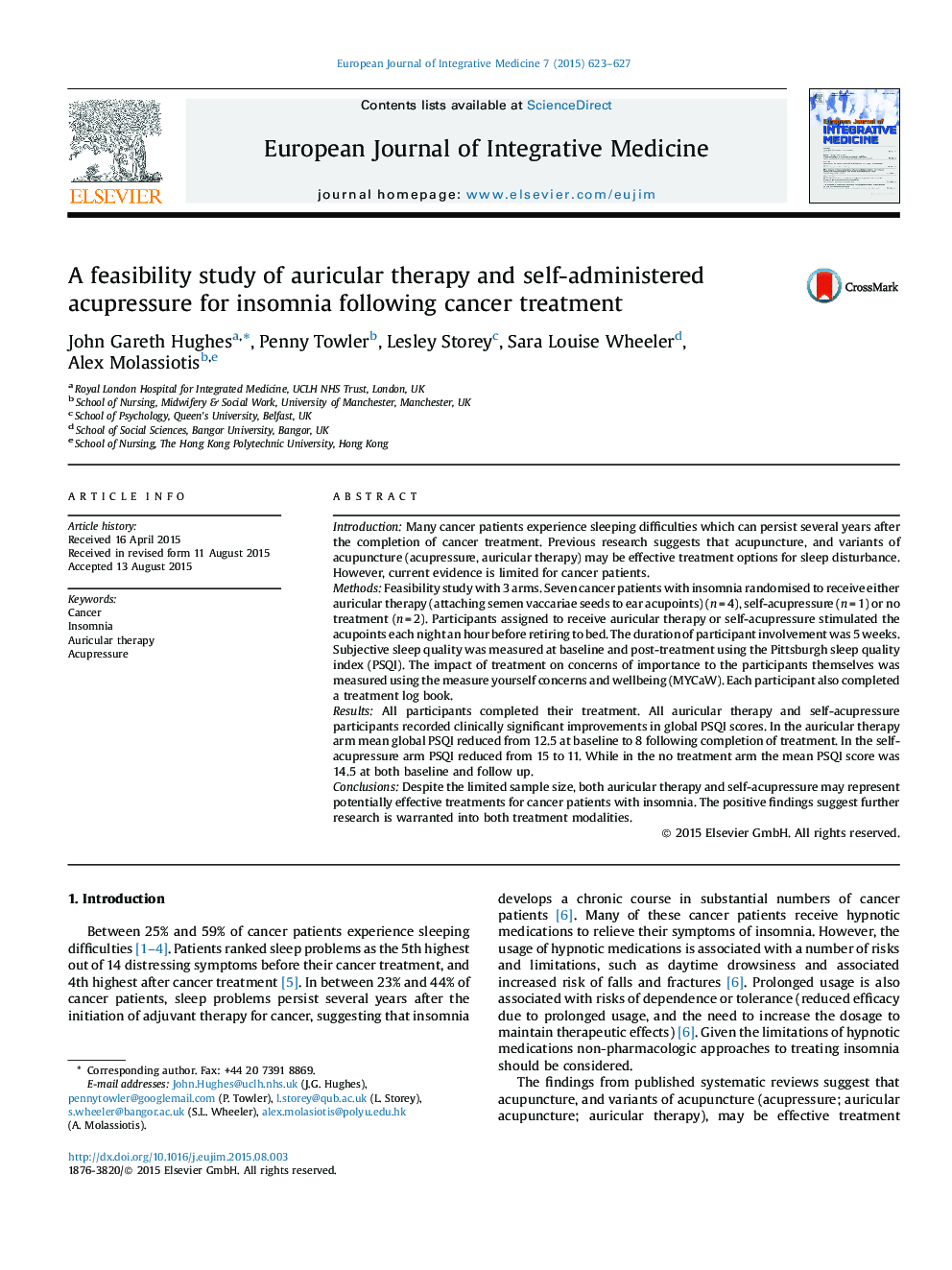| Article ID | Journal | Published Year | Pages | File Type |
|---|---|---|---|---|
| 5807816 | European Journal of Integrative Medicine | 2015 | 5 Pages |
IntroductionMany cancer patients experience sleeping difficulties which can persist several years after the completion of cancer treatment. Previous research suggests that acupuncture, and variants of acupuncture (acupressure, auricular therapy) may be effective treatment options for sleep disturbance. However, current evidence is limited for cancer patients.MethodsFeasibility study with 3 arms. Seven cancer patients with insomnia randomised to receive either auricular therapy (attaching semen vaccariae seeds to ear acupoints) (n = 4), self-acupressure (n = 1) or no treatment (n = 2). Participants assigned to receive auricular therapy or self-acupressure stimulated the acupoints each night an hour before retiring to bed. The duration of participant involvement was 5 weeks. Subjective sleep quality was measured at baseline and post-treatment using the Pittsburgh sleep quality index (PSQI). The impact of treatment on concerns of importance to the participants themselves was measured using the measure yourself concerns and wellbeing (MYCaW). Each participant also completed a treatment log book.ResultsAll participants completed their treatment. All auricular therapy and self-acupressure participants recorded clinically significant improvements in global PSQI scores. In the auricular therapy arm mean global PSQI reduced from 12.5 at baseline to 8 following completion of treatment. In the self-acupressure arm PSQI reduced from 15 to 11. While in the no treatment arm the mean PSQI score was 14.5 at both baseline and follow up.ConclusionsDespite the limited sample size, both auricular therapy and self-acupressure may represent potentially effective treatments for cancer patients with insomnia. The positive findings suggest further research is warranted into both treatment modalities.
